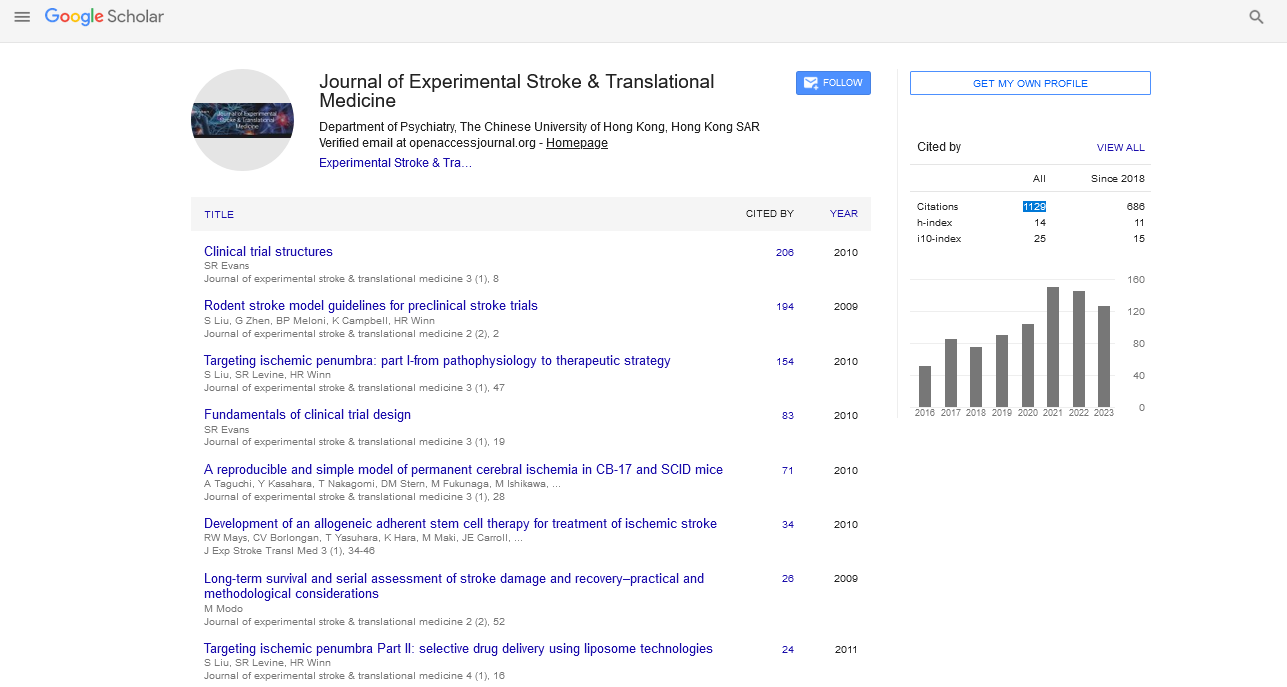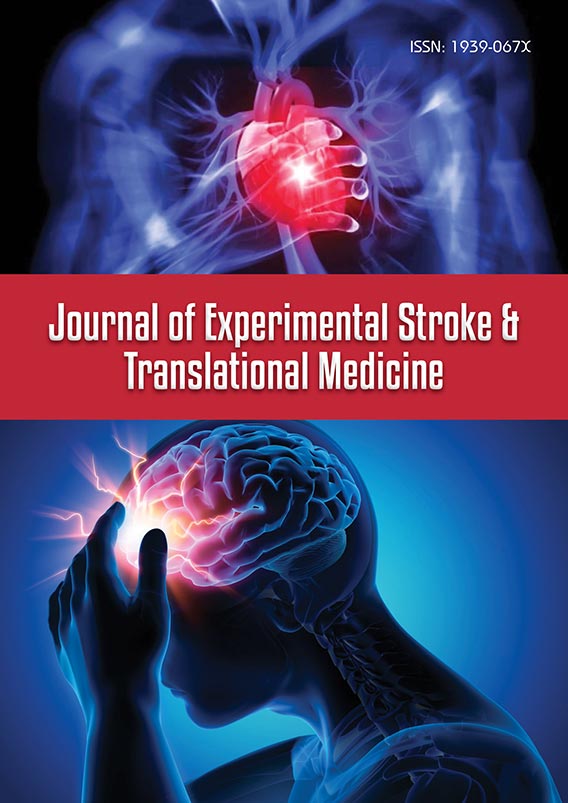Abstract - Journal of Experimental Stroke & Translational Medicine (2020)
Hypertensive Heart Disease
Noha Yaseen
Al Qassimi Hospital, Sharjah, United Arab Emirates.
Abstract
The cause of hypertensive heart disease is chronically elevated blood pressure (BP); however, the causes of elevated BP are diverse. Essential hypertension accounts for 90% of cases of hypertension in adults. Secondary causes of hypertension account for the remaining 10% of cases of chronically elevated BP.
According to the Framingham Study, hypertension accounts for about one quarter of heart failure cases.[1]In the elderly population, as many as 68% of heart failure cases are attributed to hypertension.[2]Community-based studies have demonstrated that hypertension may contribute to the development of heart failure in as many as 50-60% of patients. In patients with hypertension, the risk of heart failure is increased by 2-fold in men and by 3-fold in women.
Uncontrolled and prolonged elevation of BP can lead to a variety of changes in the myocardial structure, coronary vasculature, and conduction system of the heart. These changes in turn can lead to the development of left ventricular hypertrophy (LVH), coronary artery disease (CAD), various conduction system diseases, and systolic and diastolic dysfunction of the myocardium, complications that manifest clinically as angina or myocardial infarction, cardiac arrhythmias (especially atrial fibrillation), and congestive heart failure (CHF).
Thus, hypertensive heart disease is a term applied generally to heart diseases, such as left ventricular hypertrophy, coronary artery disease, cardiac arrhythmias, and CHF, that are caused by the direct or indirect effects of elevated BP
Biography:
Noha Yaseen is a consultant cardiologist in Al Qassimi Hospital Sharjah. She completed her residency program in Dubai Health Authority in 2013, then joined the cardiology department in Dubai Hospital where she was enrolled in the Arab Board cardiology fellowship for 3 years. She successfully passed the European board of Transthoracic Echocardiography. She is a member of the Royal College of Physicians and holds the Arab Board of Internal Medicine. Her main interests in cardiology are Heart Failure and Cardiac Imaging.
Recent Publications:
• Modulation Of Caspase-3 Gene Expression And Protective Effects Of Garlic And Spirulina Against CNS Neurotoxicity Induced By Lead Exposure In Male Rats
• Ameliorative effects of Spirulina maxima and Allium sativum on lead acetate-induced testicular injury in male albino rats with respect to caspase-3 gene expression
• Differentially Expressed Genes of Natural Killer Cells Can Distinguish Rheumatoid Arthritis Patients from Healthy Controls.

